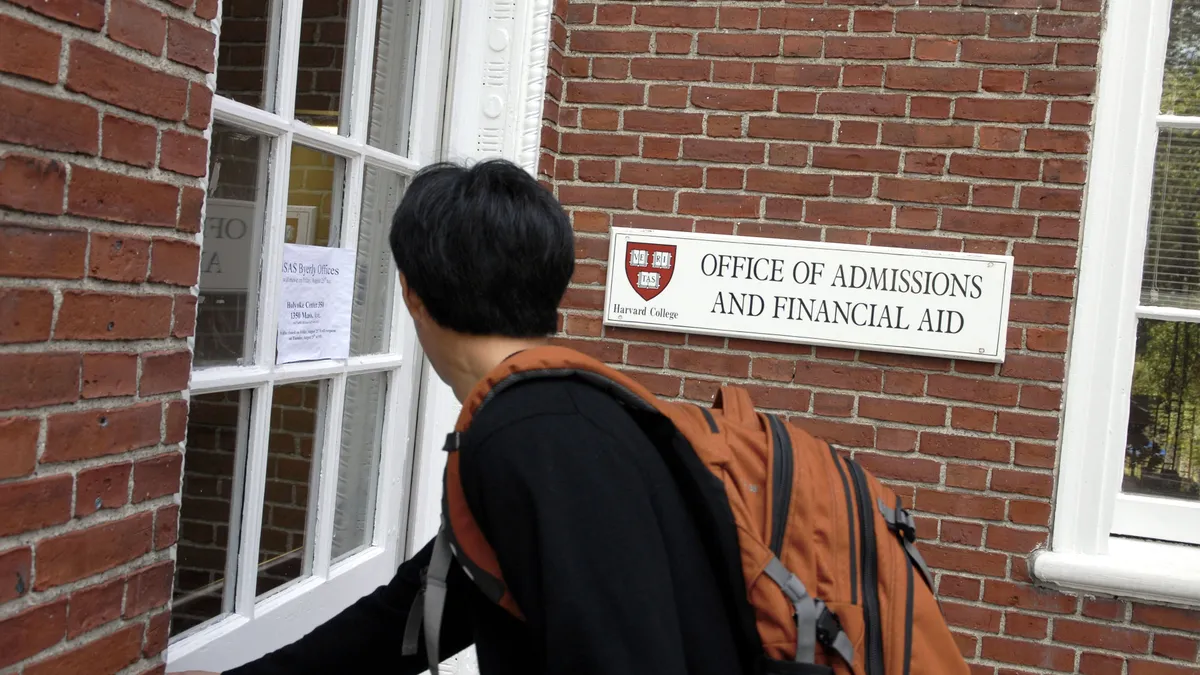Dive Brief:
-
A holistic college admissions process that takes into account resources available to students when evaluating their grades and standardized test scores is strongly associated with student success in college, according to a study released Monday by researchers at the University of Michigan and University of North Carolina.
-
Additionally, contextualizing grades — like considering an applicant's grade-point average in relation to others at their high school — has a stronger and more consistent link with college success than contextualizing test scores.
-
As a result, this practice could be the most helpful at test-optional or test-free colleges in leveling the playing field for historically marginalized students, according to the study, which relied on data from 2.3 million students, as well as data from all high schools and 4-year higher education institutions in an unidentified Midwestern state.
Dive Insight:
In the wake of the June Supreme Court ruling against race-conscious admissions at Harvard University and University of North Carolina-Chapel Hill, colleges and high school counselors have stressed the importance of a holistic admissions process that takes into account life experiences as a way to continue diversifying student bodies.
However, holistic admissions processes can vary widely within and across institutions, the study’s authors wrote. Some admissions officers may only read an applicant's entire file without putting it in context with opportunities available — or not — to a student through their high school and community.
"Contextualized holistic review avoids penalizing students from lower-resourced backgrounds if they have made the most of the opportunities made available to them," the authors wrote.
In the wake of the Supreme Court decision, many admissions advocates also called for accelerated efforts to level the playing field in other ways, such as eliminating standardized test score requirements. Standardized testing has long been criticized as an inequitable practice that favors students from higher socioeconomic backgrounds, as well as White and Asian students.
Test-optional or test-free policies grew prior to the COVID-19 pandemic and accelerated thereafter. Before the global health crisis, approximately half of four-year higher education institutions had a test-optional policy in place. During 2020, an additional 30% made the transition either temporarily or permanently.
Around 2,000 accredited bachelor's degree colleges and universities have test-optional or test-free admissions policies for students seeking to enroll in fall 2024 or beyond, according to Fair Test, which advocates for fair testing practices. The number of ACT/SAT-optional, test-blind or score-free schools has steadily climbed over at least the past decade.
However, removing standardized testing and instead relying on only the remaining information in a student's application file is a "highly questionable" method to achieve equity, authors wrote in the study published Monday.
They suggested that "rather than relying solely on test-optional policies, higher education institutions should consider incorporating contextualized measures of high school performance alongside other additional measures to increase diversity.”















